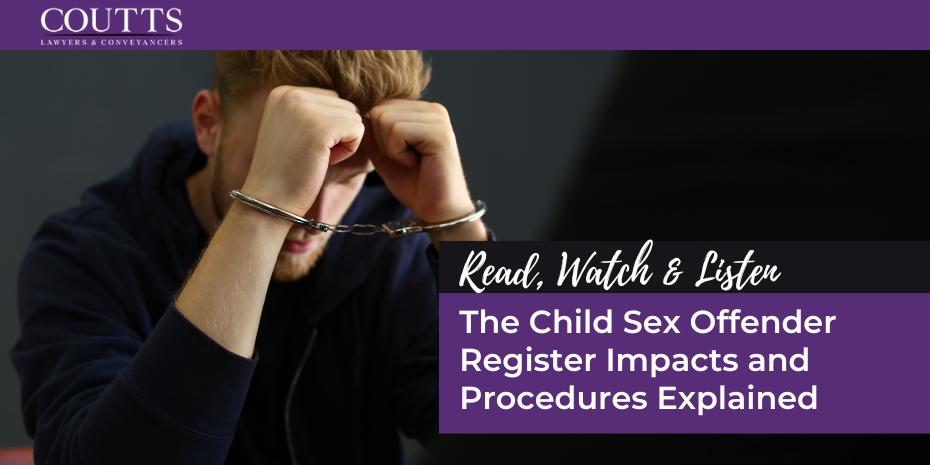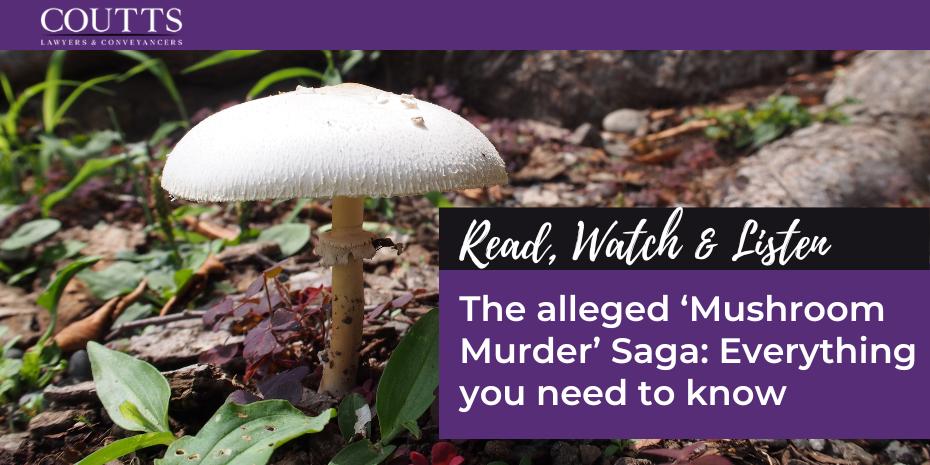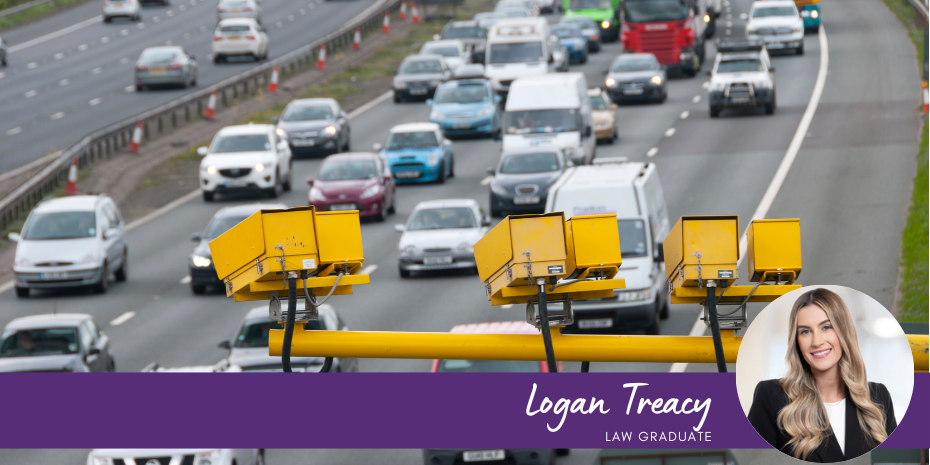KEY TAKE OUTS:
- The Child Protection (Offenders Registration) Act 2000 (“the Act”) governs the NSW Child Protection Register (also known as the child sex offender register).
- Unlike the United States, the register is kept only by NSW Police and is not accessible to the public.
- Individuals who are on the register are subjected to onerous reporting obligations. However, they are not required to notify their neighbours or members of the community.
- If a person is convicted of a registrable offence, the Court does not have the discretion to exclude the Offender from the register unless they are a child (being under 18 years old) at the time of the committed offence and to the Court’s satisfaction, does not pose a risk to the lives or sexual safety of children.
What is it?
The Child Protection Register (also known as the Child Sex Offender Register) is a record of people who have been convicted for an offence against a child who is under 18 years of age.
The register aims to help prevent and detect child sex offences by:
- Increasing and improving the accuracy of information held by police,
- Assisting law enforcement in investigating and prosecuting child sex offenders,
- Assisting police by monitoring and managing the conduct of registered persons,
- Creating a sense of security for victims of child abuse and their families, and
- Deterring people from re-offending.
Who is on the Register?
A Court will make an Order for a person to be placed on the register if they are sentenced for a Class 1 or Class 2 ‘registrable offence’ under the Act.
Class 1 offences are more serious and attract longer periods on the register than Class 2 offences.
Class 1 offences include but are not limited to the murder of a child, sexual intercourse with a child, or persistent sexual abuse.
Class 2 offences include incidents of grooming a child under 16 years for unlawful sexual activity, sexual touching, and child kidnapping and abduction related offences.
In rare circumstances, the Court may place a person who has not been found guilty of a ‘registered offence’ onto the register so long as the Court is satisfied that the person poses a risk to the safety of children.
Can Children be Added to the Register?
Pursuant to Section 3C of the Child Protection (Offenders Registration) Act 2000, the Court may make a declaration that the young person is not to be treated as a ‘registerable person’ so long as the offender was under the age of 18 and no longer poses a risk to the lives and safety of children.
In order to assess whether this declaration will be granted, the court will have regard to Section 3AA and the following circumstances:
- The seriousness of the registrable offence,
- The age of the person at the time of the offence,
- The age of each victim,
- The seriousness of any other offences committed by that person,
- The impact on the person is the order is made in comparison to the likelihood that the person will commit a further registrable offence and
- Any other matter that the Court deems relevant.
How Can a Person Be Removed from the Register?
A person can be removed from the child protection register if:
- The conviction is overturned,
- The conviction is altered to a conviction of an offence that is not registerable, or
- The person is no longer subjected to a children protection order.
Implications and Obligations for Being on the Register
A person on the Children Protection Register is subjected to onerous reporting obligations. After the initial report, the offender is required to report to the NSW Police annually.
The registerable person is obligated to report within 7 days of any changes to their:
- Contact information such as mobile number and address,
- Date of birth,
- Name and any aliases or previous names,
- Employment,
- Contact with children,
- Distinguishable marks and tattoos and removals of these marks,
- Any intention of travelling outside of NSW,
- Any motor vehicles they drive or own,
- Any internet or online usernames and email addresses, and
- Internet and phone providers.
Reporting Periods
A person convicted of Class 1 offence is liable to 15 years period of reporting and Class 2 is liable to 8 years. However, a person may be required to report for life if they commit a Class 1 offence in conjunction with another registrable offence or 3 or more Class 2 offences.
A ‘young, registered person’ under 18 years of age is subjected to a reduced reporting period. In the circumstances of life reporting, the young, registered person is required to report for 7 and a half years.
If a person fails to comply with these reporting obligations, the offender is liable for a maximum of 5 years imprisonment and/or 500 penalty units (as of 1 July 2023, this fine will equate to $156,500).
When Do Report Obligations Begin?
The reporting period begins within 7 days after sentencing if the registered person is not in custody. However, if they are in custody, they are required to report within 7 days of their release. If the conviction was made outside of NSW, the registered person is obliged to report within 7 days of arriving in NSW and each year after that.
How are Reports Made?
Reports are made in person to the local police station where the registered person resides. The reports required under the Act are the initial report, annual report, and report of change of essential information such as change in residential address or contact details.
Suspend Reporting Obligations
A registered person may make an application to suspend their life reporting obligations if 15 years have passed since the person has been sentenced. The application is heard by the NSW Civil & Administrative Tribunal and will only be granted a suspension if the Court is satisfied that the registered person no longer poses a risk to the lives and safety of children.
Who can view the Child Protection Register?
Civilians cannot freely access the Child Protection Register in NSW (New South Wales). The Child Protection Register in NSW is maintained by the NSW Police Force and contains details of persons who pose a risk to children. Access to this register is restricted to certain authorised individuals and entities, primarily for the purpose of safeguarding children.
If someone has a reason to know about an individual’s status in relation to child protection, there are alternative channels, such as obtaining a Working with Children Check, rather than directly accessing the register.
Always consult current NSW legislation and the NSW Police Force’s policies for up-to-date and detailed information on this topic.
How Can We Help?
Being charged with an offence against a child is a gravely serious matter. Our expert criminal lawyers are well-equipped to provide you with comprehensive legal guidance during this challenging time. By turning to us, you’ll benefit from informed insights into your specific situation, potential defences, and the best strategies to navigate the legal process. We prioritise your rights and interests, ensuring you’re adequately informed and represented every step of the way. Don’t face this alone; let our expertise guide and support you.
For further information please don’t hesitate to contact:
info@couttslegal.com.au
1300 268 887
Contact Coutts today.
This blog is merely general and non-specific information on the subject matter and is not and should not be considered or relied on as legal advice. Coutts is not responsible for any cost, expense, loss or liability whatsoever to this blog, including all or any reliance on this blog or use or application of this blog by you.



